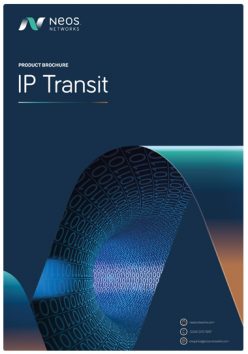What are autonomous system numbers (ASN)?
An autonomous system number is a unique identifier that allows an organisation to connect to other organisations and ISPs. The organisation can then send and receive IP addresses, which can be further distributed to benefit from resilient, scalable, high-performance Border Gateway Protocol (BGP) connectivity directly to the Internet.
Learn more about Dedicated Internet Access
Types of autonomous system numbers (ASNs)
There are both private and public ASNs, including 16 and 32-bit variants.
Until 2007, all ASNs were 16-bit. They run from 1 to 65,535. Within that range, however, some ASNs are reserved for private use. Numbers 1–23,455 and 23,457–64,495 are for public use.
Numbers from 65,536 to 4,294,967,295 are 32-bit ASNs. However, only 131,072–4,199,999,999 are public ASNs.
What is BGP?
Border Gateway Protocol (BGP) is widely used by Internet Service Providers (ISPs), content providers and large enterprises. It establishes and manages their routing policies, safeguarding reliable and efficient delivery of traffic on the internet.
How do ASNs work?
Internet service providers use ASNs to identify their networks and the routes connecting them to the internet. As a result, routers can use ASNs to determine the best path for data packets travelling between networks. ASNs tell routers which network the data is being sent to.
Organisations also use ASNs to control how their network traffic is routed, while also creating peering relationships with other networks. Peering involves interconnecting networks to exchange traffic directly, rather than via a third-party network.
How to get an ASN number
Any person or organisation can apply for an ASN. It does, however, require you to have a contractual agreement with the RIPE NCC, which is the regional internet registry for Europe, the Middle East and certain parts of Central Asia. They distribute and register blocks of internet number resources to internet service providers.
To obtain an ASN, you’ll have to become a member with RIPE NCC or, alternatively, you can have a sponsoring local internet registry submit the request for you.
Note that a new ASN number should only be requested if there is a requirement for a new external routing policy. In addition, a network has to be multihomed to qualify for an ASN number.
What are the benefits of having a public ASN number?
- Multi-homing: choose from multiple internet service providers, selecting the one that’s performing best or has the faster path to your targeted network
- Internet Exchange (IX) peering option: using an IX, you get access to thousands of potential peering partners and direct access to your chosen network, without any transit networks in between
- Cloud connections: benefit from a direct interconnect with cloud platforms, giving reliable connections to business-critical systems
What is an ASN gateway?
An ASN gateway is how internal communication nodes (within a business, for example) connect to the global internet at one common point, using an ASN number. The internal nodes (each of which has its own IP address) are connected through an Internal Gateway Protocol (IGP). This internal grouping of nodes is then linked to the wider internet through a Border Gateway Protocol (BGP).
ASN numbers and gateways help regional internet regulators to deal with the huge amount of nodes now communicating with each other around the world. Tying several IP addresses to one location (the BGP) makes it easier for regulators to keep track of internet users.




